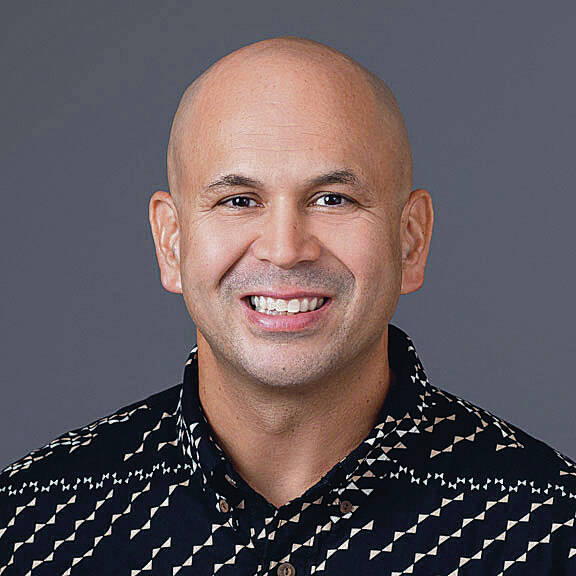Column: Mind local values amid Trump policies

COURTESY PHOTO
Christian Fern
Our recent presidential election made the majority of us in Hawaii realize the unthinkable can happen. With the reelection of President-elect Donald Trump, we can no longer scoff at his ideas or dismiss his rambling ruminations as outrageous. We must take every word seriously.
Aligned with the vision of Project 2025, Trump says he plans to restore his controversial immigration policies, including the largest deportation operation in American history. His plan to leverage federal government agencies in unprecedented ways to go after his political enemies and the U.S. military to enforce immigration and border security have chilling implications.
Already immigrant advocacy groups are bracing themselves, and are much better prepared to counter his antics than they were in 2016 when he was president the first time. All of us in Hawaii should also be prepared.
We are a multicultural, multi-ethnic community because of the integration of our immigrant ancestors, who came from the Marquesas Islands in Polynesia, countries in Southeast Asia, and parts of Europe to Hawaii seeking better lives for their families. More than any other state in the nation can claim, generations of Hawaii residents have done our immigrant ancestors proud and have shown their sacrifices were not in vain.
However, subtle systemic discrimination lingers against Hawaii immigrants, many of whom are tax-paying, working individuals who buoy our local economy. We see employees of our hospitals treated with contempt for advocating for fairer staffing to improve patient care. We see hotel workers doing their best to uphold the image of Hawaii as a welcoming destination despite having inadequate human resources to deliver on that promise. It was disturbing to learn that many brazenly crossed their picket line, showing no empathy for these workers and ignoring their concerns that affect all of us in Hawaii.
We are witnessing a throwback to the 1880s when plantation owners could get away with cheap labor and exploit those from other countries to do back-breaking work in the fields. It was a time when laws worked against these indentured servants, and they had no recourse to civilly protest.
Don't miss out on what's happening!
Stay in touch with breaking news, as it happens, conveniently in your email inbox. It's FREE!
Fortunately, today we have unions to intervene. Unions have played a key role in protecting worker rights and have helped to close the gap in economic, social and health disparities in our state. Through the work of unions, Hawaii residents have a better quality of life. Trump and Project 2025 proponents seem intent on dismantling unions and undoing the strides we have made as a state.
In an era in which more autonomy is being returned to individual states, let us steward that power effectively and create opportunities to uplift each other. We cannot let ominous federal forces polarize our community, decimate our state, engender hatred, and take away all that makes Hawaii that proverbial melting pot.
In these bleak moments, we can thank Hawaii leaders who came before us for their wisdom to enshrine protective measures and principles in the Hawaii State Constitution. In 1968, Hawaii became one of the first states in the nation to vote in favor of public sector employees gaining the right to collective bargaining. The lowest paid at the time, finally had a voice. Hawaii saw the value of unions, and Chapter 89 of the Hawaii Revised Statues has become a guide in our state.
More than ever, it is also time to live the aloha spirit as described in Section 5 of our state Constitution, and cling to our local values: akahai (kindness), lokahi (unity, harmony), oluolu (agreeable), haahaa (humility), and ahonui (patience, perseverance). We cannot succumb to divisive federal policies or overlook the most vulnerable among us. We must honor the dedication of our ancestors, carry on their dreams and have the political courage to live aloha.
Christian Fern is executive director of the University of Hawaii Professional Assembly, the union representing faculty across the 10 UH campuses statewide.




